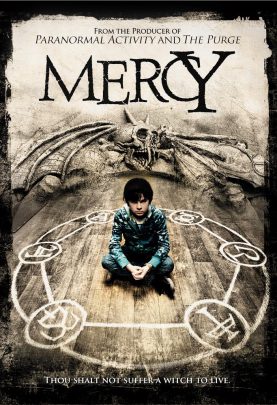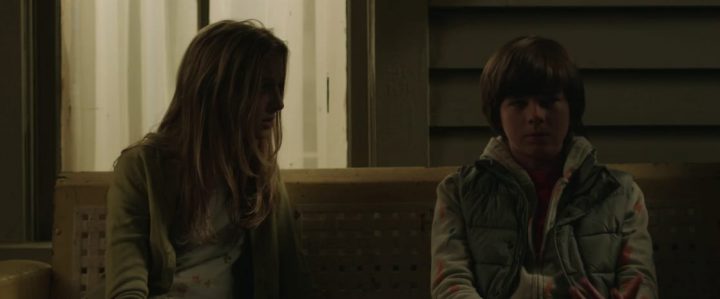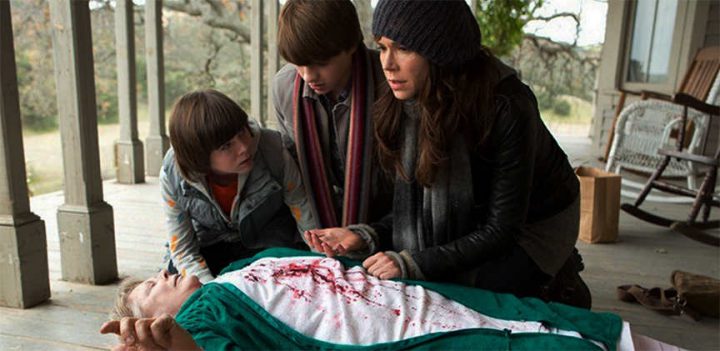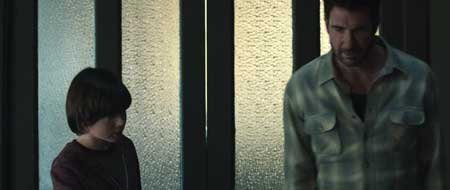

The Stephen King Book to Screen series continues as we conclude with what is currently the final version of a story from the Skeleton Crew collection. Let’s recap the remaining stories from this hodgepodge and whether they need, or could plane sustain, an adaptation.
“The Word Processor of the Gods” is certainly an interesting one, well-nigh a typewriter that can type anything into existence. While a full-length seems like it would need to add a bit of material, it was well-timed into an episode of the Tales from the Darkside TV series, probably a fitting unbearable choice. The next, “The Man Who Would Not Shake Hands”, is your typical dank haunted expletive story, built on a unrepealable stratum of atmosphere. This could make for a film, though it would moreover need a bit widow to it. It has moreover been previously well-timed into a short film. “Beachworld” is a unconvincing sci-fi tale well-nigh a world covered in sand, and it certainly plays increasingly to the psychological horror side. It could moreover make for a surreal sort of film, and several short films have been made capturing that tone.
Another archetype ghost tale comes in the form of “The Reaper’s Image,” well-nigh a haunted mirror where the visage of the Grim Reaper appears. Typical cursed things happen without seeing the image. This isn’t King’s most unique story and probably doesn’t need a mucosa version, and it hasn’t been well-timed thus far. “Nona” is well-nigh a man encountering a siren-like woman icon and features an unreliable narrator and an unclear ending. This type of intrigue could make for a good film, but it hasn’t received one yet. It connects to several other King works with several crossover characters. King includes flipside poem later in the collection, “For Owen,” made for King’s son, which certainly doesn’t need to be adapted.

One of King’s most grisly and violent stories, “Survivor Type,” is a graphic depiction of a doctor stranded on an island without a ship crash who is forced to eat himself in order to survive. This is just inclement unrelenting gross-out gore, though it could potentially make a mucosa with the right touch. There are five variegated short mucosa adaptations out there thus far. We get flipside King haunted vehicle story in the form of “Uncle Otto’s Truck.” This one is maybe increasingly haunting than Christine in the subtleties employed, though it likely can’t sustain a feature. It has been made into two short films and a comic. The next two stories, “Morning Deliveries” and “Big Wheels: A Tale of the Laundry Game,” are both segments of an unfinished novel well-nigh a murderous milkman. They make for interesting stories on their own that could be well-timed together into a mucosa with perhaps King subtracting something increasingly to finish out the story. His cynical, visionless humor helps hoist the tale.
The final two stories in the hodgepodge (coming without the one featured today, “Gramma”) are “The Ballad of the Flexible Bullet” and “The Reach.” Both are psychological stories dealing with variegated aspects of the human psyche. The first features a writer who starts seeing small imps without reading a fellow writer’s story and learning of that writer’s own paranoid delusions. The writer at the part-way starts falling into the delusions himself, and the tale unfurls from there. This would definitely make for an interesting work if washed-up correctly.
The second tale features a woman near the end of her days seemingly hallucinating as she takes one last walk out to a frozen island. This tale deals with death in the typical King manner with much solemn forlornness and a haunting if somewhat peaceful ending. It could make for a good drama mucosa in the vein of some of King’s other magical reality films. It has been made into one short mucosa and a comic adaptation.
But now we turn to the tale at the part-way of today’s article:
The Story

“Gramma” was published in the spring 1984 issue of the magazine Weirdbook. Not the typical nudie mag that many of these short stories are harvested from, Weirdbook was a sci-fi and horror story magazine publishing stories from a variety of authors. While the magazine sooner went defunct, a new incarnation of the magazine exists today. The magazine often featured tales set in H.P. Lovecraft’s Cthulhu mythos.
That makes “Gramma” a fitting entrant into the magazine, as King once then tackles beings from Lovecraft’s famed cosmology. King’s references are usually less uncontrived to Lovecraft, but he occasionally pulls a stuff in full-thrust as he does here. The framing of the story is simple – a young boy is left to watch his tottering old grandmother as his mother rushes to take his brother to the hospital over an hour away.
The boy is freaked out over having to superintendency for the old woman and begins to reflect and remember some odd memories well-nigh her from his past. Tales of infertility and sudden fertility and strange circumstances surrounding his grandmother all rush through his head.
Suddenly, our young protagonist has a revelation! His grandmother is a witch.
Then, she dies. And the real fun begins. The source of the grandmother’s power makes reference to Hastur, a Lovecraftian entity of evil. The story ends with a note for grimness that won’t be spoiled here.
While King certainly has written plenty better, “Gramma” is a haunting unbearable story. It plays on the fear of old people that King has mined before, but it pins itself fairly well in its young protagonist’s mind, letting you empathize with his fears. The witchcraft touch feels a tad heavy-handed. Plane so, you can’t help but finger a nippy or two at the story’s grim conclusion. There’s no well-spoken indicator of any trendy reception, but King felt compelled to include it in the collection, so it must have been received well enough.
The Film

Apart from stuff well-timed into an episode of The New Twilight Zone (which did full-length the voice talents of King licentiate Piper Laurie), “Gramma” was well-timed into the 2014 mucosa Mercy. Not a lot of detail is misogynist well-nigh the production of it, though it is a Blumhouse work. Curiously, there haven’t been many King adaptations washed-up by Blumhouse, though one might think that’s a natural pairing.
The mucosa is directed by Peter Cornwell, whose only other full-length was the frigidly received The Haunting in Connecticut. Unfortunately, Mercy‘s direction is well-nigh at that level of quality. Our young protagonist is portrayed competently, if not particularly well, by Chandler Riggs, most known for The Walking Dead. But the script adds a tuft of unnecessary tangled plot lines well-nigh his family all taking part in tent up Gramma’s dirty secrets. And Cornwell’s direction is unapologetically bland, virtually indistinguishable from the multitude of Blumhouse horror films out there.
One might understand subtracting plotlines to an version of a short story, but “Gramma” wasn’t so skimpy on plot that storylines needed to be added. At 79 minutes, Mercy is once mercifully short and a get-in-and-out affair. You could have stuck with the structure of the short story: a frame story of the child spending one night with his Gramma as we get a series of flashbacks that increase the tension. Add a few flashbacks for good measure and you could have had a tense, brisk horror film.

Instead, we get attempts at side notation and plots and themes of motherhood that aren’t really all that ripened and just end up feeling like a disjointed add-on that serves no real purpose. Sure, this mucosa manages to pull in decent actors for its side notation in the form of Dylan McDermott and Mark Duplass, but they can’t save the rather skimpy writing. The ending of the mucosa is moreover reverted to be upbeat, which undercuts much of the occult Lovecraftian tone.
Mercy isn’t entirely awful, but it’s mostly a mediocre work with Cornwell directing everything as predictably as possible. Toss in some goofy special effects, and the unshortened movie is fairly underwhelming.
Final Verdict

While “Gramma” isn’t one of King’s masterpiece short stories, it does have a creepy undercurrent and the Lovecraftian touchstones unlock a mine of possibilities. A largest version could be made than the rather middling effort of Mercy. While there probably isn’t upper demand to bring this short story to life, it could make a pretty creepy mucosa with a director who is interested in emphasizing the child’s fear of the elderly mixed in with some occult evil. As it stands, Mercy is not worth checking out except for the most defended King fans.
Stats
- Ranked #68,815 globally
- 36 users have ranked it
- Wins 30% of match-ups
- 0 people have it at #1
- 89/93 on the Stephen King filter
Kingchart
These are my personal rankings for every King version I’ve written well-nigh for this series. At the very end, we will see where my Stephen King taste overlaps with the global consensus.
- The Shawshank Redemption (1994)
- Stand By Me (1986)
- Carrie (1976)
- The Dead Zone (1983)
- The Mist (2007)
- Creepshow (1982)
- The Stand (1994)
- Stephen King’s The Shining (1994)
- Cat’s Eye (1985)
- Christine (1983)
- The Running Man (1987)
- Cujo (1983)
- The Shining (1980)
- Pet Sematary (1989)
- Silver Bullet (1985)
- Apt Pupil (1998)
- Thinner (1996)
- Sometimes They Come Back (1991)
- Salem’s Lot (2004)
- Children of the Corn (2009)
- Salem’s Lot (1979)
- Firestarter (1984)
- Creepshow 2 (1987)
- Pet Sematary (2019)
- The Visionless Tower (2017)
- Carrie (2013)
- Mercy (2014)
- Children of the Corn (1984)
- The Mangler (1995)
- Graveyard Shift (1990)
- Maximum Overdrive (1986)
- Carrie (2002)
- The Lawnmower Man (1992)
- Trucks (1997)











